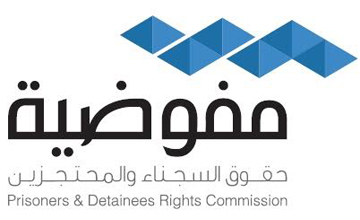ID :
407784
Wed, 05/25/2016 - 23:04
Auther :
Shortlink :
https://www.oananews.org//node/407784
The shortlink copeid
Prisoners' rights commission issues report on prison visit

Manama, May 25 (BNA): The Prisoners and Detainers Rights Commission (PDRC) today released a report on its unannounced visit to the Jau Rehabilitation and Reformation Centre (JRRC) on November 15-22.
PDRC said that it had gained major practical experience in inspecting places of custody.
"This experience assisted the Commission in forming a detailed inspection plan for the visit to Jau Reformation and Rehabilitation Center (JRRC)," PDRC said, adding that the report published in September 2013 by the Ombudsman’s Office (OO) inspection of JRRC was also taken into account during the visit.
The PDRC team also took into account several issues raised in the reports by some NGOs on allegations related to treatment and conditions of detention.
The PDRC's report assessed the extent of the implementation of previous recommendations regarding the place, including the replacement of the existing buildings with new ones, as well as installation of surveillance cameras throughout JRRC, corridors and wings and maintenance and renovation of existing buildings, as well as the separation of younger prisoners.
The report also included statistics and data on JRRC, revealing that on November 15, there 2,468 prisoners, while the actual capacity of JRRC is only 2,145.
Figures also showed that there were 1944 Bahraini prisoners, and 524 non-Bahrainis.
Regarding the number of prisoners according to their offences, the report indicates that on the same date, there were 48 who committed murder, 663 who committed drug crimes, 224 who committed theft, 1021 who committed crimes related to terrorism and rioting and 512 who committed other offences - related to traffic violation, illegal residence, financial embezzlement and sexual assault.
The Commission highlighted the method used in collecting information on the place and the detainees. It said that its team had met prisoners, who were randomly selected from various buildings, wings and cells by the PDRC team without any interference from JRRC staff.
"Meetings with the prisoners were held independently in groups, and without the presence of any of JRRC staff. The prisoners were briefed on the PDRC team role as well as the purpose of the interviews, ensuring them of privacy and confidentiality," the report said.
The team also had access to all facilities, in accordance with international standards in this regard.
The PDRC also made a number a recommendations, and said that it would follow up on their implementation with the competent sides. They included, mainly:
- The Ministry of Health should provide adequate healthcare to inmates in coordination with the Interior Ministry.
- The Ministry of Education should coordinate with JRRC administration to provide education for all prisoners who need and want it.
- There should be enough education, work and other activities to occupy prisoners purposefully and help them to participate in society after release.
- The replacement of old buildings should be completed as soon as possible. Meanwhile, the conditions in some old buildings should be improved.
- There should be more surveillance cameras in all the buildings, walk paths and wings. There should be written rules that determine the walkways for prisoners.
- A clear and specific system for complaints, grievance and the protection of complainants should be set up.
PDRC said that it had received replies from the Interior Ministry on the report.
The full report is available on the PDRC website: http://www.pdrc.bh





